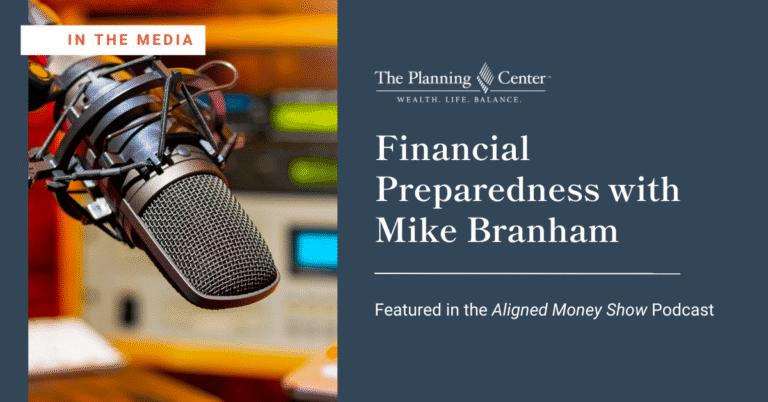For many affluent individuals, annual giving and other methods of direct wealth transfer are a cornerstone of estate planning. With a well-designed gifting strategy, they are better able to ensure that their assets are transferred in a more tax-efficient manner, with more going to their heirs and other beneficiaries, and less going to the federal government in form of estate or wealth-transfer taxes.
But like most important processes, family gifting strategies are best carried out in an atmosphere of clear and frequent communication. Family gifting requires planning and preparation, and in this article, in addition to reviewing some basics, we’ll discuss the hows and whys of making sure all the participants in your gifting strategy are “on the same page” with your core priorities, methods, and processes.
Sharing the Vision
Establishing a lasting financial legacy requires more than simply providing assets to heirs. It also requires a carefully crafted, well-communicated plan to prepare the recipients for the responsibilities that go along with managing and exercising stewardship over wealth. Additionally, the donors may also have philanthropic aspirations that will fall to their heirs, along with the personal wealth being transmitted. Accordingly, one of the most important factors for families that intend to pass along wealth and extend its impact down through the years is attention to educating the next generation of family leaders to ensure their commitment to the dreams and goals of the founders. This shouldn’t be put off until “the kids are older”; it should be baked into the very beginnings of the organization. According to experts, the “philanthropy mindset” is learned in early childhood, and that learning then extends throughout the individual’s life. Further, children as young as nine are capable of learning the basic principles of money management.
On the other hand, conversations around gifting and its estate planning implications can be difficult. The fact is, most people would rather discuss almost any other topic than what happens with their estate when they die. And as hard as it is to have that conversation with a financial professional, lots of folks find it even harder to talk about these matters with their children. There are a number of reasons why these types of conversations can be difficult, but one of the more common ones is that wealthy parents are afraid that discussing a potentially large inheritance could rob their children of the motivation to succeed on their own merits.
This is an area, however, where silence is rarely golden. For one thing, parents may be making assumptions about their children and their attitude toward wealth that are unwarranted or inaccurate. For another, children are typically more observant than their parents often understand. Avoiding the discussion in order to “not let the kids know we’re wealthy” is not very effective, because children learn from a very early age the differences wealth makes in households. Especially in an age when almost any information is available online—as long as you know where to look—keeping family wealth “secret” from future heirs is difficult, and may even be harmful if the children feel they can’t be trusted with such important information.
The good news is that the benefits of clear communication far outweigh the drawbacks. For one thing, the more that heirs and beneficiaries of the estate can understand in advance about their parents’ arrangement and intentions, the better equipped they will be to serve as good stewards. Generally, the more your survivors understand about your intentions, priorities, goals, and plans for your estate, the less stress and uncertainty they’ll have to deal with when the time comes for your estate plan to go into effect. The attitude typified by “Daddy’s dyin’; who’s got the will?” may make for an interesting movie plot, but in real life, there should be no mysteries surrounding your final wishes for your estate or your intentions and goals for making annual gifts to your family.
In fact, open, honest family dialogue around gifting and estate planning can provide important opportunities to empower the next generation, to articulate and pass on family values, to build a stronger foundation for a multigenerational family legacy, and even to take maximum advantage of tax and legal strategies that can benefit both the estate and its beneficiaries.
Speaking the Same Language
As we discussed in our previous article, there are multiple techniques that may be employed in the context of a family gifting program. Depending on the specifics of your family’s resources and situation, various methods may be employed beyond the simple (yet effective) annual gift tax exclusion. Certain trusts may be useful, especially if the need exists to transfer larger amounts of money out of the estate than that permitted by the annual exclusion (in 2025, $19,000 per person per donor; a married couple could give a total of $38,000 to one or more individuals with no gift tax assessed).
The point is, those receiving the gifts should be aware of the basic principles being utilized. If there is a trust involved, its beneficiaries should understand the main aspects of how the trust functions. Annual gifts should be communicated in advance, to permit the recipients to plan appropriately for how the assets will be employed.
Next, all involved parties should be involved in an ongoing, periodic review of the family gifting strategy. Life happens, and as things change—like marriages, divorces, deaths in the family, changes in a family business—the estate planning needs can be altered, which can also affect the gifting strategy. All this should be communicated to the involved family members. Staying informed and involved will also help to ensure that everyone understands their role in the ongoing operation of the estate.
At The Planning Center, we understand that our clients have goals and intentions for their assets that may extend beyond their own lifetimes. By providing fiduciary guidance and experience, we can help them create and communicate gifting strategies and other estate planning efforts that can help make sure there is maximum impact for their financial legacies. If you have questions or would like more information on these or related matters, please visit our website.






